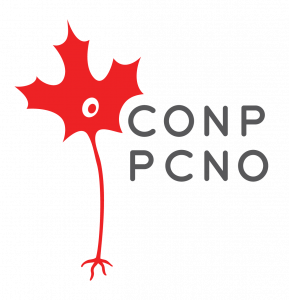What is the CONP?

Canadian Open Neuroscience Platform (CONP) aims to make neuroscience research, data, and tools accessible to everyone, with the ultimate objective of accelerating scientific discovery and its eventual translation to disease treatments. The CONP takes a multi-faceted approach to enabling open science in the field of neuroscience, including:
- the CONP Portal, which allows datasets, analysis tools, and experiments to be shared in accordance with FAIR principles
- Evidence, an open publishing platform that provides interactive, fully transparent and reproducible scientific publications that embed data, text, figures and code along with the full computational environment required to run that code
- governance frameworks and toolkits for an ethically sound data-sharing policy that strikes a balance between safe-guarding the rights of data subjects and promoting widespread public benefit from scientific advancement.
Taken together, these elements embody the CONP vision for promoting Open Science practices in neuroscience, with attendant benefits for brain researchers and the wider community.
Read more about the CONP in our paper, The Canadian Open Neuroscience Platform—An open science framework for the neuroscience community
The CONP supports Canada’s basic neuroscience and clinical neuroscience research communities to:
- share phenotypic/genotypic data and methods in an unrestricted manner
- create large-scale databases impossible to achieve within a single institution
- facilitate the use of advanced multivariate analytic strategies
- disseminate findings to the global community
- train the next generation of computational neuroscience researchers
Open Science is a growing movement which aims to make scientific research and data accessible to everyone. Open Science is an umbrella term which covers the open dissemination of data, manuscripts, software, materials, methodologies, and other outputs scientists produce in their research. Open Science also aims to make the scientific process more transparent and accessible.
Open Science is widely considered to be beneficial for scientists, patients, and the public at large and is strongly supported by a broad cross-section of entities including UNESCO and WHO, as well as different levels of the Canadian government. Its advantages include:
- greater availability and accessibility of publicly funded scientific research outputs
- possibility for rigorous peer-review processes
- greater reproducibility and transparency of scientific works
- greater impact of scientific research
- greater public implication in the conduct and fruits of scientific research
Many challenges in the field of neuroscience may be helped by adopting open-science practices. Sharing research findings and outputs openly can move things along more quickly to find answers to many key questions in neuroscience. There is a critical, unmet clinical need for treatments for many brain-related illnesses, in particular neurodegenerative diseases such as Parkinson’s and Alzheimer’s. Open Science can help drive discovery of therapeutics for these diseases, helping to find innovative solutions more quickly.
The CONP receives funding from a Brain Canada Platform Support Grant Competition Award in addition to funds and in-kind support from sponsor organizations, principally the Ludmer Centre for Neuroinformatics and Mental Health and the Marc and Susie Sievers Computational Neuroscience Initiative. Others have included McGill/MNI Tanenbaum Open Science Institute, Fonds de Recherche du Québec, Ontario Brain Institute/Rotman Research Institute, École Polytechnique, Institut de Cardiologie de Montréal, Western University, McLaughlin Centre/University of Toronto, Université Laval, University of Calgary, Douglas Hospital Research Foundation, Human Brain Project, University of British Columbia, Simon Fraser University, Concordia University, Dell/EMC, IBM, Compute Canada and Quebec Bio-Imaging Network.
The CONP has three main components:
- Administrative structure
- Committees
- Members
For general information, to financially contribute to the CONP as a donor or to collaborate scientifically as a partner organization, please email us at: info@conp.ca
If you would like to access or share data or pipelines as an individual or organization, please visit the portal at https://portal.conp.ca
For technical assistance or to learn more about the CONP Portal, please visit https://portal.conp.ca/contact_us
If you would like to share open and reproducible publications, please visit https://evidencepub.io/
The CONP Platform: the First Four Years and Looking Ahead
Professor Alan C. Evans reflects on the first four years of the Canadian Open Neuroscience Platform (CONP) in this November 2021 Brain Canada video. Professor Evans salutes Brain Canada for showing “… a lot of vision in committing to the idea of open science and funding the CONP …” to build a large-scale, national effort to reduce the barriers to open data-sharing and open workflows in the Canadian neuroscience community, both of which are key to pioneering research programs and accelerating discovery.
Dr. Evans also noted the importance of the next generation of neuroscientists in this process, looking upon their comfort with open science and data sharing with envy: “I really wish I could start over again now.”
